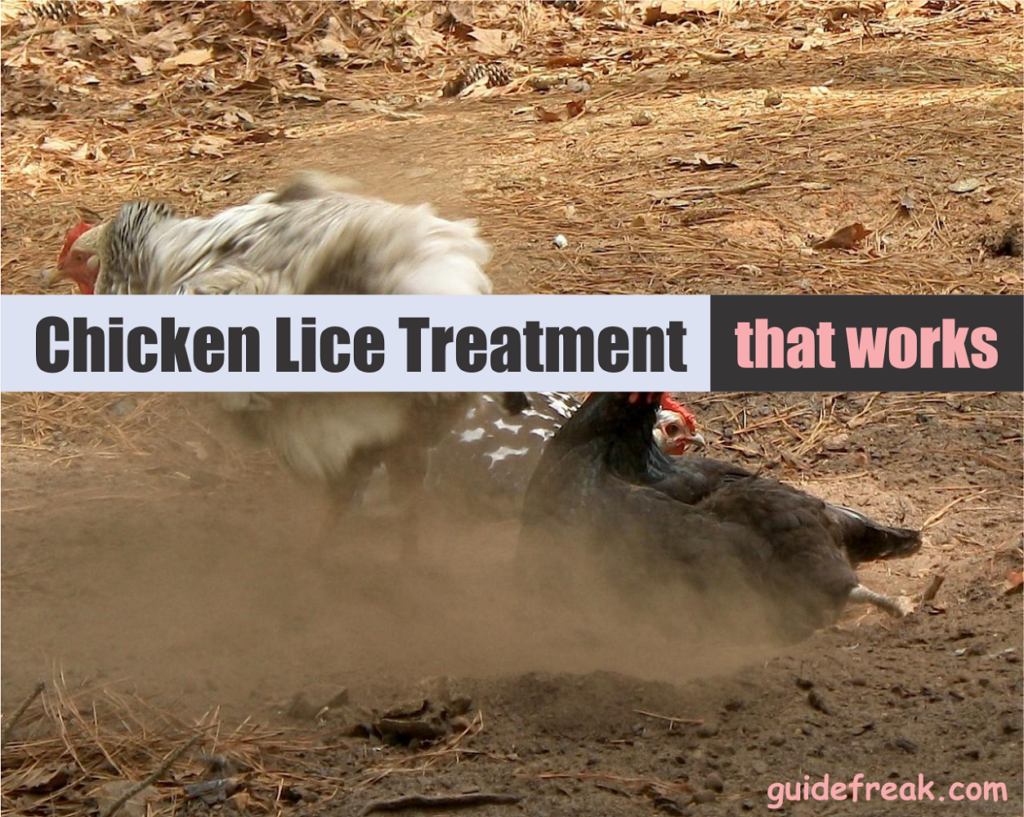Chicken Lice Treatment that Works like Magic

- Advertisement -
Chicken lice are ectoparasites that cause a lot of discomfort to your chickens. Beyond what they do to your chickens, they also cause great economic loss for the farmer. Hence, the reason why they must be put out as quickly as possible. In this article, I will share natural and chemical ways of eradicating lice and mites in your chicken farm. But before I go to chicken lice treatment, lets consider some of the signs that tell you that your chickens have been infested with lice or chicken mites.
Table of Contents
Signs of Infestation of Lice or Mites
- Pale combs and wattles – Once infested with lice or mites, your chickens’ combs and wattles may start to look pale in color. This is because the ectoparasites feed on your chicken blood and nutrients. It is a common sign of heavy infestation
- Discomform/Itchy feeling – Chickens do preen themselves on a normal day, but if you notice too frequent pecking of feathers and preening, your chicken might have some lice or mites
- Sluggishness – Chickens that are infested with lice will often be sluggish
- Red patches under the wings – chicken lice may leave pink, red or dark coloration under your chicken wings as a result of feeding.
- Loss of appetite – this will happen when your chickens are heavily infested.
- Drop in egg production – This becomes a major economic concern for the farmer. Just like many other sicknesses in the hen’s body, egg production often suffers
- Physical presence – Some lice are big enough to be seen with the unaided eye.
Interestingly, chicken mites only feed at night and will usually jump off the chicken’s body during the day. This means that you will find them on the soil (you may not see them), or on the walls and pillars of the poultry house. One thing you can do to see them on your chickens is to check back in their pen 2-3 hours after light-out. By then, they will be back to feed.
Chicken Lice Treatment – Chemical
Some drugs that can be administered include
- Cypermethrin 10% EC – This can be constituted at 5ml per liter of water and sprayed on birds. You may have to repeat this after 5 days for a lasting solution
- Ectoblaster – Spraying Ectoblaster will also help get rid of chicken lice or delouse your chickens as the case may be.
- Kepromec – Interestingly, oral administration of Kepromec also does the job well
- Promectin – This is another no go area for lice. It works well when used according to manufacturer’s instructions.
Chicken Lice Treatment – Natural
There are a number of tested and trusted natural and cost effective methods of treating chicken lice and mites. Some of these have been practiced for several decades but the good thing is that they still work. In fact, we now have scientific explanations as to why and how most of these natural remedies work. Some of the natural ways to control Chicken lice and mites include:
- Wood Ash – Apart from getting rid of lice from an already infested flock, wood ash can also help in preventing lice or mites infestation. Many of us used to think that chickens are just being playful when they are having a dust bath. But on the contrary, they are actually self medicating.
- Restore Iron – Your heavily infested chickens must have lost some red blood cells to the lice so you want to restore that. Good iron sources include pumpkin seeds and spinach. You want to serve these as treats to flock while treating chicken lice
- Aromatic Agents – these are herbs with strong smell that can repel ectoparasites. Examples include mint, lavender and lemon balm. However, these are mostly useful when the infestation is not heavy.
- Neem Oil – Neem oil is another great repellant that can be sprinkled inside and around your chicken house to deter chicken lice and mites from settling there.
How to Effectively Prevent Chicken Ectoparasites
To effectively prevent the invasion of chicken lice or mites, you need to be on the watch. The following are things you can consider to completely lice-proof your chickens:
- Don’t forget to quarantine – introducing new birds can be dangerous. Any new chicken may be carrying some growing number of lice so you want to keep it away from the rest of the flock for some time. This is called quarantine.
- Avoid contact with stray or wild birds – giving access to wild birds could be another loophole. Don’t make that mistake. Cover the openings in your chicken house with netting material to stop stray birds from entering
- Dust baths – this is an effective way of keeping your chickens free of lice. When chickens bath themselves in the soil (playground earth) or wood ash, the ash scratches the exoskeleton of the ectoparasites and causes them to dehydrate and die.
- Avoid overcrowding – while overcrowding may not bring chicken lice or mites to your farm, it encourages rapid multiplication of these ectoparasites.
So, which ever remedy you choose, both chemical and natural treatments are effective, and if done well, will give you the result that you need. So, why wait? Act now and get rid of those tiny devils before they cause too much havoc.
READ ALSO: 5 Vaccination Errors that will Kill Your Chickens
Disclaimer: Treatment suggestions are made based on my experience as an Animal Scientist. However, I am not a Veterinary doctor. Please feel free to work with your vet if you need further guidance
- Advertisement -

